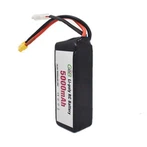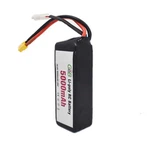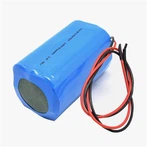Yes, you can replace the original e-bike battery with another brand, but compatibility is crucial. Different brands may use varying specifications, such as voltage, capacity, and connectors, which can affect performance and safety. Here's what you need to consider before making the switch.

When to Replace Your E-Bike Battery
Understanding when to replace your e-bike battery is key to maintaining optimal performance. Here are some signs that indicate it's time for a replacement:
Reduced Range: If you notice your e-bike doesn't go as far on a full charge as it used to, it may be a sign that the battery is losing capacity.
Longer Charging Times: If the battery takes significantly longer to charge than before, this could indicate deterioration.
Physical Damage: Inspect the battery for any swelling, leaks, or corrosion. Physical damage can pose safety hazards.
Performance Issues: Experiencing frequent cut-offs or sudden loss of power while riding can be a sign that the battery is failing.
Age: Most lithium-ion batteries last around 2-4 years, depending on usage and care. If your battery is within this age range, consider a replacement.
Compatibility Issues
When replacing your e-bike battery, compatibility is the first hurdle. Different brands may produce batteries with varying voltage ratings (e.g., 36V, 48V) and capacities (measured in amp-hours, Ah). A mismatch can not only damage your e-bike's electrical system but also lead to suboptimal performance, such as reduced range or overheating. It's important to research and confirm compatibility before purchasing a replacement battery.
Connector Types
Another critical aspect is the connector type. Different brands may use proprietary connectors, which can complicate replacement. If the connectors don't match, you may need an adapter, but this can introduce additional resistance and potential failure points. Always check for compatibility with your current battery's connectors to ensure a secure fit.
Specifications to Consider
Voltage: Ensure the new battery matches the voltage of your original battery. A mismatch can cause serious malfunctions. For instance, using a 48V battery on a 36V system can lead to overheating and permanent damage to the controller.
Capacity: Consider the amp-hour rating. A higher capacity can extend your ride time, but it may also add weight. It's also worth noting that larger batteries might alter the center of gravity, impacting handling.
Battery Chemistry: Most e-bikes use lithium-ion batteries, which are efficient and lightweight. However, newer technologies, such as lithium iron phosphate (LiFePO4), offer enhanced thermal stability and safety, albeit at a slightly heavier weight. Understanding these chemistries can help you make an informed decision.
Physical Dimensions: Make sure the new battery can fit in the designated battery compartment without modification. Larger batteries may require changes to your bike's frame or mounting system, which could be impractical.
Battery Management System(BMS): Many modern e-bike batteries come with a built-in BMS that monitors charging and discharging. If your replacement battery has a different BMS, it could affect overall battery performance and lifespan.

Important Considerations During Replacement
Safety First: Always disconnect the e-bike from power before starting the replacement. Wear gloves and safety goggles to protect yourself. Lithium-ion batteries can be hazardous if punctured or improperly handled.
Follow Manufacturer Guidelines: Consult your e-bike's manual for specific instructions regarding battery replacement. Manufacturers often provide recommendations for compatible batteries.
Test the New Battery: After installation, perform a test run. Monitor for any unusual sounds, smells, or performance issues. Pay attention to the battery's temperature during the first few rides; overheating could indicate problems.
Quality Matters: Opt for reputable brands that offer warranties and certifications. Low-quality batteries may not only underperform but could pose safety hazards, such as thermal runaway-a condition where a battery overheats and can catch fire.
Professional Installation: If you're unsure about any aspect of the replacement process, consider seeking professional help. This can prevent potential errors that could lead to costly damages.

Recommended E-Bike Battery Brands
If you're looking for reliable e-bike battery options, consider the following brands:
Bosch: Known for high-quality batteries with excellent performance and longevity, Bosch batteries are a popular choice among e-bike manufacturers.
Panasonic: A well-established name in battery technology, Panasonic offers reliable lithium-ion batteries that provide consistent power.
Samsung SDI: Renowned for their innovative battery solutions, Samsung SDI batteries are widely used in various e-bike models.
Yamaha: Yamaha's e-bike batteries are designed for efficiency and durability, offering great performance for urban commuting and recreational riding.
BionX: Specializing in e-bike systems, BionX batteries provide good range and reliable performance, catering to both casual riders and enthusiasts.
General Electronics battery(GEB): It is a professional manufacturer of electric bicycle lithium batteries. Our factory was established in 2009 and is located in Shenzhen. Now, we have more than 180 employees, our annual sales of more than 30 million US dollars, and we have become E-bike battery industry leaders.









